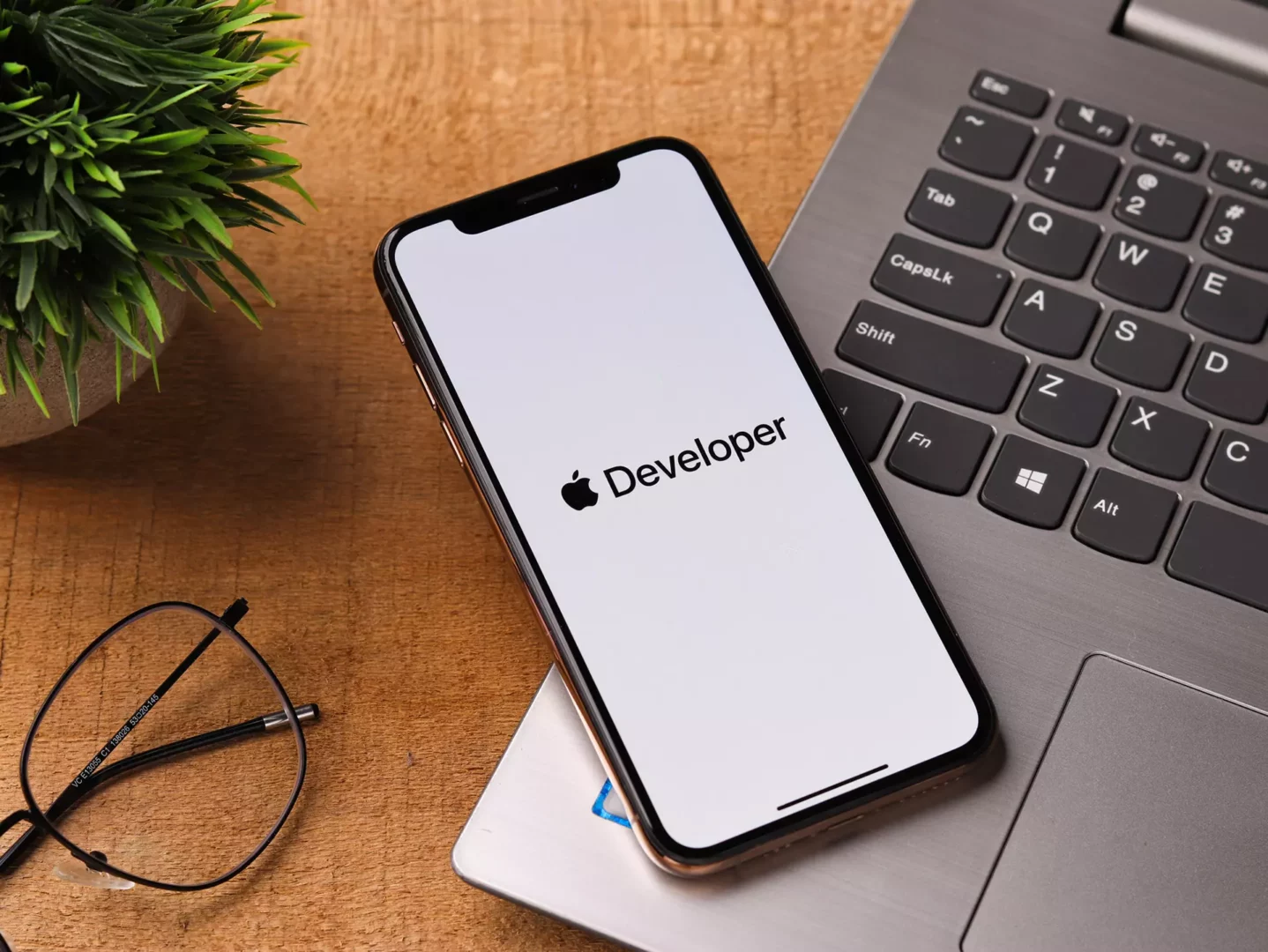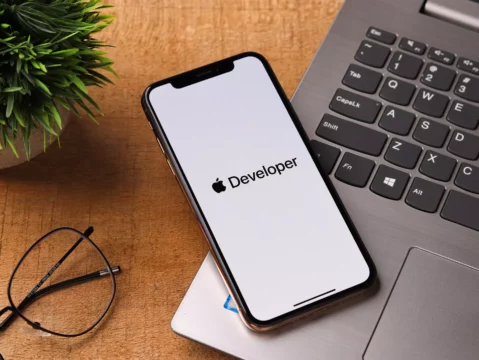
Chances are, if you own an iPhone, then you’ve already come across the term iOS. In short, iOS (formerly iPhone OS) is a mobile operating system that makes Apple gadgets like the iPhone work. But iOS isn’t that interesting on its own (unless you’re a tech nerd like me), but that’s where an iOS developer comes in.
An iOS developer is a software developer who specialises in building mobile apps for devices that run Apple’s iOS operating system, namely the iPhone and iPod touch. In general, they also work with iPadOS, tvOS, and watchOS.
With the ever-increasing demand from customers for businesses to provide mobile experiences on the go, iOS developers are much sought after for their skills. Read on more to learn a little bit more about what iOS developers do and the skills they need.
What do iOS developers do?
An iOS developer builds, tests, and refines applications for mobile devices that use Apple’s iOS operating system. Although it’s possible to develop an app single-handedly, iOS developers usually work as part of a team working for an end client.
What skills does an iOS developer need?
Like most software professionals, iOS developers need both technical and soft skills. Soft skills are the non-technical skills that relate to how people work. Soft skills can include interacting with colleagues, solving problems, or managing time. Technical skills are a developer’s “bread and butter”; they cover the languages, tools and frameworks needed to get the job done.
An iOS developer needs to have the following skills.
Communication
Above all, the essential skill for an iOS Developer is communication. Whether it’s written or verbal communication, understanding each other is vital.
Tip: if you’re a developer who wants to improve your written communication, Grammarly could be the app for you. I’ve personally found it helps dramatically with writing clear, concise and understandable text.
Problem Solving
There is a misconception that problem-solving in software is all about using algorithms and complex logic. But the key to solving a problem is to understand it. And understanding requires asking questions to dig deeper and identify the real issues. That’s why good problem solvers are good at asking questions and thinking analytically.
Time Management
A developer will often need to assist in scoping a project and providing estimates on time or effort to complete tasks. These are essential aspects of project management and time management. In addition, developers need to know how to prioritise tasks in their workload.
Strategy / Marketing
If you build an app and no one downloads it, does it even exist? This is the problem that marketing solves. For an independent developer knowing your target market and having a strategy to reach them is the foundation of a successful app business.
Understanding of Design UI/UX standards
Your app’s UI (User Interface) is the part people interact with, like the buttons, inputs, sliders, menus, etcetera. While the UX User Experience is how your app works for them – the way they flow through your app. Understanding how to apply these types of design is an essential part of creating an app your users will love.
Understanding of Apple’s design principles and interface guidelines
Apple has famously strict standards for the apps it allows on its’ app store and cares particularly about how the UI of apps look. The requirements of this are documented in its Interface Guidelines. If you choose to ignore these guidelines, Apple may decide to reject your app from its app store – so ignore them at you’re peril.
Knowledge of low-level C-based languages
Native iPhone applications are written with either Objective-C or Swift, which are both based on the C programming language. Therefore, it/s a good idea for app developers to have at least some basic experience in coding software using C before learning these languages.
Experience and proficiency in Swift or Objective-C
These days most new iPhone apps are written using the Swift programming language. But suppose your job will involve working with and maintaining legacy applications. In that case, it was probably written using Objective-C – Apple’s previous favoured programming language.
Familiarity with RESTful APIs to connect iOS applications to back-end services
Just about every app has a back end to store or process users’ data. Whether it be for connecting to a third-party messaging system or uploading an image to a server, your app will communicate with the back-end via a RESTful API.
Familiarity with cloud message APIs and push notifications
The Apple ecosystem provides powerful APIs and libraries for adding functionality to your app. Which includes cloud messaging and push notifications. Knowing how to leverage them can be a real game-changer, helping to improve efficiency. Saving time that would otherwise be spent implementing features from scratch.
Using the XCode IDE
Xcode is Apple’s integrated development environment for macOS, used to develop software for macOS, iOS, iPadOS, watchOS, and tvOS. In other words, if you want to build any software for Apple products, XCode is essential. The XCode IDE has some quirks, and it’s vital to get some experience with your tools to be an efficient and effective developer.
The App Store
The Apple App Store is the platform for browsing and downloading mobile apps on its iOS and iPadOS operating systems. The apps that Apple allows people to download from the store have to be approved by Apple. As an app developer, you’ll need to know how to deploy your app to the store and make sure you’re app follows their guidelines.
Analytics
App Analytics is used to track and analyse how people use your app, so you can gain insights to make improvements. Two common use cases for analytics is to anonymously detect bugs and crashes so that you can fix them before too many other people are affected. A second popular use case is to track how features within your app are being used, so you can identify which ones to focus your development efforts on.
Version Control
Using a version control system such as Git, Mercurial, or SVN is essential for developers, even if they work solo. Version control creates a store of the history of a codebase. So, if a bug is added, we can go back to a previous version with minimal disruption.
What types of projects does an iOS developer work on?
For a developer who’s new to iOS, having built an iPhone application with Swift and UI Kit that connects to a back-end like Firebase should be enough to get an entry-level – junior app developer job.
For more experienced app developers, there are many projects they can get involved with, from business SaaS apps to real-time Messaging or Stock trading apps, through to Mobile Games, and everything between. There are great opportunities to find projects to work on that you feel passionate about working on.
Summary
As we have seen in this article, iOS developers build mobile apps for Apple devices, like the iPhone, iPad and iWatch. The range of projects they can work on is vast. And they need a long list of skills to deliver projects.
Could you use some help on an iOS app development project?
At Full Revolution, we love to help entrepreneurs bring their ideas to life. So, if you dream of launching an iPhone app and could use some help, you can get in touch with us here.

